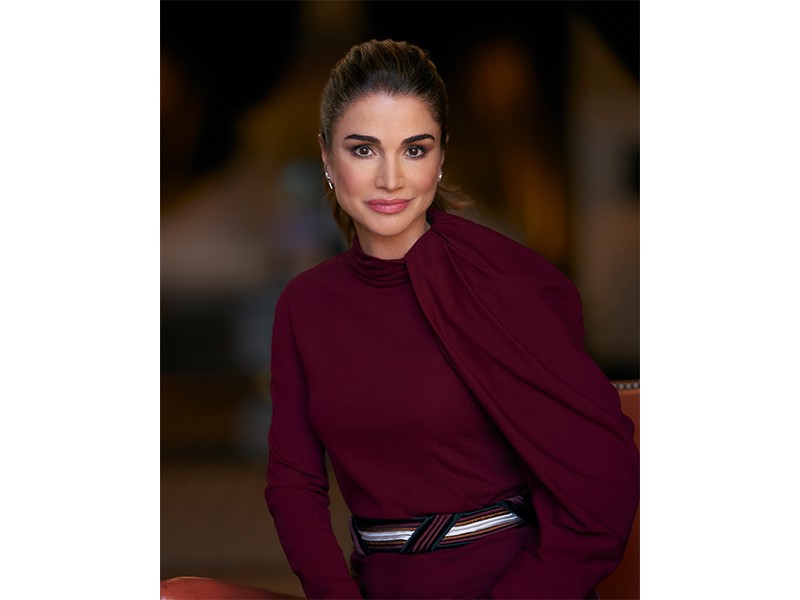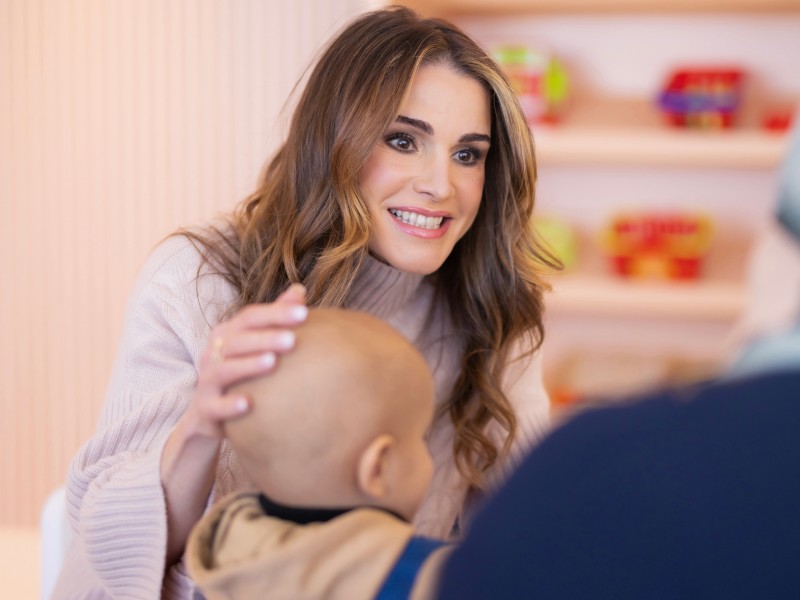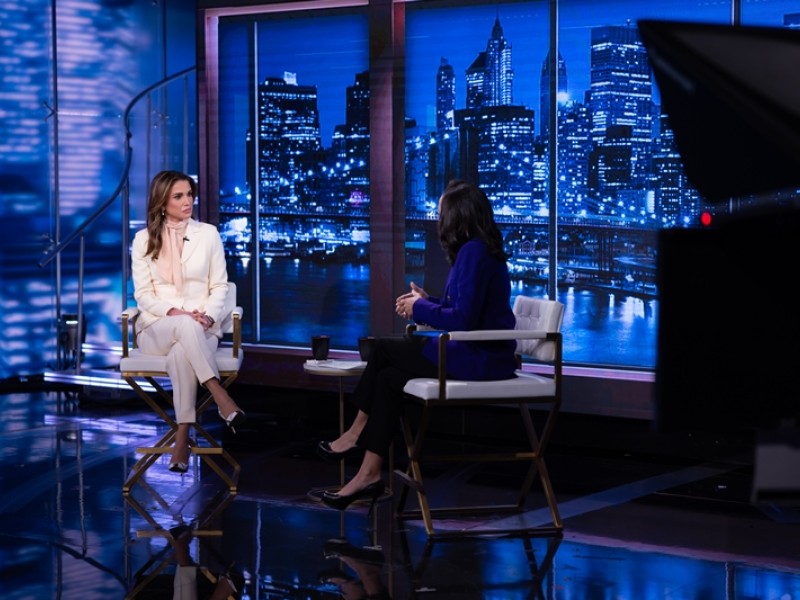Queen Rania's Interview with the Telegraph

The Queen recently made headlines for getting on an ordinary commuter train. While this sudden appearance surprised Britons, the people of Jordan are far more used to publicly-accessible royalty. Their monarch, Queen Rania Al Abdullah of Jordan, is on Twitter, Facebook and has her own YouTube channel.
Queen Rania was in Paris earlier this month to speak at Le Web, a conference that brings together some of the world’s smartest technology entrepreneurs. Though she once worked in Apple’s marketing department, Queen Rania is not someone you would expect to find alongside Chad Hurley, the co-founder and CEO of YouTube, and Jack Dorsey, Twitter’s co-founder.
However, as she delivered her speech - with its key messages compressed into Twitter-friendly 140-word bites - it soon became clear that she understands the real-time web and is using it in her royal duties and her charitable work.
Later she explained: “I think we are at the tipping point. Everyone uses social media but what I want to know is can social networking bring real life change in real time? These are powerful networks and I think increasingly we are going to be able to use these communities to share resources to bring about important changes.”
At the moment Queen Rania is working with 1Goal, a partnership with FIFA and the Global Campaign for Education, to get the 75 million children around the world who are out of school, into classrooms. The aim is to have 30 million signatures by the end of the World Cup in 2010, to present to global leaders.
She hopes to encourage the “digital Darwins, at the bleeding edge of our own e-evolution” as she refers to the conference delegates, to promote her cause on their websites.
Technology has done more than help her charity work, it’s allowed her to get closer to people. “Being a queen can be difficult. There’s a lot of protocol. When I am a virtual queen it is a space which allows me to demystify who I am, what I do and lets me get closer to people.”
Queen Rania has four children and, like many working mothers, she says the internet has helped her find information and made it possible for her to see her children via a webcam while she is away from home. She may be unusual, however, in wanting to be able to follow her fridge on Twitter to find out when it’s low on chocolate.
Asked whether other royals should follow her lead into the digital space, she says: “I feel communicating online is not just for royal families – it’s for everyone in a public position trying to make a difference. We need to redefine how we do business and our language. We must use a language that is more able to resonate. Online is where you get raw information. People feel more comfortable being open in the virtual world.”
In her Paris address she talked about a group that raised money for a food bank in Canada by holding a social media auction, and how, after typhoon Ketsana crashed into the Philippines coast three months ago, locals rallied volunteers and directed aid through social networks and used Google Maps to pinpoint the worst affected areas. “The key is to publish action-based messages which will rally people to leave their computers,” she says.
There is the concern that social networks are about vanity and that virtual actions have no real world effects. However, Queen Rania has faith that the vast communities built up through the likes of Facebook can be mobilised to do good offline.
“People say I am very unconventional for being so present online but the world is changing. I think the theme of our community is openness and transparency,” she says. “You just have to make sure you have nothing to hide then there is nothing to be worried about.”
مواضيع مختارة
موقع جلالة الملكة رانيا العبدالله الرسمي
هذا الموقع الإلكتروني لا يدعم متصفحات الإنترنت القديمة. الرجاء تحديث متصفح الإنترنت إلى نسخة أحدث من إنترنت إكسبلورر 9
متصفح الإنترنت الذي تستخدمه قديم. لتحسين مستوى الأمان عند تصفح مواقع الإنترنت و مشاهدتها بالشكل الصحيح و بفعالية افضل قم بتحديث متصفح الإنترنت الخاص بك



